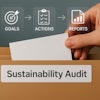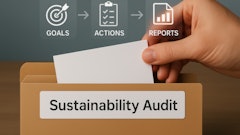
EPR’s appeal is rising across Europe as concerted climate action is increasingly pressing. The past few months have borne witness to broad-ranging shifts in the European EPR landscape, from reporting to waste collection requirements. Major legislative updates swept across the packaging world right at the advent of 2023, and with the middle of the year here, governments, businesses, schemes and consultancies have their eyes set on the years to follow.
The wave of EPR changes that took over Europe in this year’s first month was nothing less than vertiginous. Indicatively, the latest amendments to Austria’s Packaging Ordinance saw new requirements with regard to reporting and appointing an authorized representative come into play. As of the 1st of January 2023, importers and packers participating in household collection and recycling systems must accurately report their collection and recycling rates for certain single-use plastic products. Moreover, distance sellers and mail order companies marketing their products in Austria from their basis abroad are obligated to appoint an authorized representative who can meet their packaging obligations on their behalf.
An amendment to Germany’s 2019 Packaging Act (VerpackG) has impacted final distributors of to-go and delivery food and beverages as these are required, since the first day of the year, to offer reusable alternatives in addition to single-use plastic packaging for food and beverages sold for immediate consumption or take-away. Distributors must also inform the end consumer of reusable options available in a given retail unit via visible boards or signs. Along similar lines, an amendment to Portugal’s Decree Law no.102-D/2020 obliges, as of the 1st of January, distributors of beverage packaging to make single-use products for immediate consumption available in a reusable form, whilst retail units of 200m2 must have a duly marked area selling beverages in reusable packaging. Spain’s Plastic Tax (Law on Waste and Contaminated Soils), also enforced on the 1st of January, entails that an amount of 0.45 EUR per item is due at the point of manufacturing, import, or inter-community acquisition for specific single-use plastic products.
Nearer to the present time, France’s latest addition to the Environment Code is the multifaceted Decree no.2023-162 on packaging waste and establishing the extended producer responsibility sector for packaging producers used to market products to consumers or used by professionals with a catering activity. As of the 8th of March 2023, producers of packaging used by catering professionals need to contribute to collecting, reusing and recycling the packaging waste they generate. Those producers of catering packaging who have transferred their obligations to an eco-organisation (i.e., a compliance scheme) need to pay it a financial contribution. The law makes further provisions for household and non-household packaging waste. Eco-organisations share the costs of collecting and cleaning household packaging waste. Appropriate treatment methods for non-household packaging waste are identified, such as preparation for reuse and recycling.
Legislative changes that will be rolling in throughout the next years have been announced to help prepare businesses to market their products accordingly. A major amendment to the Netherlands’ Packaging Management Regulation and the Packaging Reporting Regulation is the regulation on determining the recycling percentage for beverage cartons. Beginning on the 1st of July 2023, marketers of beverage cartons made of paper and cardboard, plastic and aluminum will need to recycle certain percentages per calendar year of the annual carton quantity they make commercially available.
England’s much-anticipated Further Ban on Single-Use Plastics is estimated to launch in October 2023, banning single-use plastic plates, trays, bowls, cutlery, balloon sticks, and certain types of expanded polystyrene cups and food containers. The Republic of Ireland’s Deposit Return Scheme (DRS), aiming to come into force in February 2024, places a refundable deposit on single-use containers; the deposit is refunded to the consumer when they return their cans and bottles. Different sets of obligations apply to producers and retailers. Meanwhile, the introduction of Scotland’s Deposit Return Scheme has been delayed until the 1st of March 2024.
Hungary’s Government Decree on the detailed rules for the establishment and application of deposit fees and the marketing of products with a deposit fee (DRS) is coming into force on the 11th of November, 2023, entailing a mandatory deposit fee of 50 HUF per item or a voluntary deposit fee on single-use beverage products. Austria’s Deposit Return Scheme starts on the 1st of January 2025, charging a deposit of 0.25 EUR per item for single-use beverage containers made of plastic, aluminum, metal and glass.
Staying current with enforced and forthcoming legislation is key to maintaining an eco-friendly supply chain process— including stay "in the know" on locations outside of your home base.



















